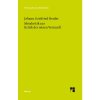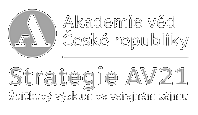archiv publikací

The Philosophy, Theology, and Rhetoric of Marius Victorinus
This collection of essays is devoted to the rhetoric, Neoplatonic philosophy, and Christian theology of Marius Victorinus, a mid-fourth-century professor of rhetoric and philosopher who converted to Christianity late in life. Contributors, including Jan Dominik Bogataj, Michael Chase, Nello Cipriani, Stephen A. Cooper, Volker Henning Drecoll, Lenka Karfíková, Josef Lössl, Václav Němec, Thomas Riesenweber, Guadalupe Lopetegui Semperena, Miran Spelič, Chiara O. Tommasi, John D. Turner, and Florian Zacher, explore the many facets of Victorinus's writings and thought, from his use of philosophical sources, to his treatises and hymns on the Trinity, and his commentary on Cicero's Rhetoric.

Hellenism, Early Judaism, and Early Christianity. Transmission and Transformation of Ideas
Papers collected in this volume try to illuminate various aspects of philosophical theology dealt with by different Jewish and early Christian authors and texts (e.g. the Acts of the Apostles, Philo, Origen, Gregory of Nazianzus), rooted in and influenced by the Hellenistic religious, cultural, and philosophical context, and they also focus on the literary and cultural traditions of Hellenized Judaism and its reception (e.g. Sibylline Oracles, Prayer of Manasseh), including material culture ("Elephant Mosaic Panel" from Huqoq synagogue). By studying the Hellenistic influences on early Christianity, both in response to and in reaction against early Hellenized Judaism, the volume intends not only to better understand Christianity, as a religious and historical phenomenon with a profound impact on the development of European civilization, but also to better comprehend Hellenism and its consequences which have often been relegated to the realm of political history.

Filosofie naděje (Výbor z díla)
Ernst Bloch je klasickým filosofem 20. století, kterého proslavila především práce Princip naděje. Jeho myšlení mělo zásadní vliv na tradici neortodoxního marxismu, ale také např. na československý marxisticko-křesťanský dialog. V češtině dosud nebyly dostupné žádné překlady Blochových textů, proto chce výbor tuto mezeru zaplnit. Cílem je zprostředkovat autorovy myšlenky ze zásadních oblastí jeho zájmu, jakými jsou ontologie, náboženství, politická teorie a estetika. Výbor je doplněn úvodní studií, která uvede do základů Blochova myšlení a zasadí vybrané texty do kontextu jeho díla.

Metakritik zur Kritik der reinen Vernunft
Herder, der zeit seines Lebens Kant als Lehrer rühmte, stand dessen »kopernikanischer Wende« mit tiefer Skepsis gegenüber. Er sah im vorkritischen Kant den besseren Philosophen und lehnte Kants kritische Transzendentalphilosophie mit ihrer geltungstheoretischen Bevorzugung des Subjekts ab. In vielem geht Herder aber über Kant hinaus und erscheint heute überraschend modern, so in der Verknüpfung von Erkenntnis- und Sprachtheorie, des geschichtlichen und interkulturellen Denkens mit metaphysischem, wertuniversalistischem Denken und in der Kritik der mechanistischen Naturwissenschaft und subjektzentrischen Philosophie der Neuzeit. Wenige haben eine so entschlossene und scharfe Analyse von Kants Theoremen durchgeführt wie er.
Herders »Metakritik« erntete in ihrer Zeit nur wenig Aufmerksamkeit und eher verständnislose Kritik, für die Ausgestaltung der Systeme des deutschen Idealismus und die Philosophiegeschichte des 19. wie 20. Jahrhunderts blieb sie weitgehend folgenlos. Mehr als andere bedeutende Denker der Geistesgeschichte leidet das Bild Herders bis heute unter zahlreichen Stereotypen. Sein Werk erfreut sich inzwischen aber einer zunehmenden Aufmerksamkeit. Er wird nicht mehr »nur« als Geschichts-, Sprach- oder Kulturphilosoph wahrgenommen, sondern auch als bedeutender Erkenntnistheoretiker und Metaphysiker.

Duše, tělo a smrt od Homéra po Platóna I
První díl dvoudílné studie zachycuje především proces vnitřní strukturace lidského nitra a sebepojetí v antickém Řecku mezi 8. až 4. stoletím př. n. l. Kniha sleduje mj. ustavení a prosazování konceptu „duše“ (psýché), která postupně nahrazovala pluralitu psychických funkcí dominujících za Homéra. Zkoumá také proměňující se pojetí těla, které v dřívějších dobách neslo určité psychické funkce (zejména v podobě různých „sil“ a „energií“), ale později v důsledku posilování hodnoty rozumu a profilace psýché nabývalo stále více povahu jejich méně hodnotného protivníka. Dále je analyzováno utváření vnitřního jádra člověka, které zprvu nebylo spojováno s duší a na něž začínaly být i upínány eschatologické naděje, jejichž rozbor bude náplní druhého dílu. Četbu usnadňuje detailní shrnutí všech kapitol, která jsou koncipována jako samostatná knížečka a která by měla být dobře přístupná i těm, kteří se na antiku nespecializují.

Život ducha II. Chtění
HANNAH ARENDTOVÁ (1906-1975) se ve svém posledním díle, jehož knižní podoba vyšla až z pozůstalosti, věnuje základním, na sebe nepřevoditelným dimenzím lidské mysli či ducha: myšlení, chtění a souzení. Druhý svazek se zabývá mohutností vůle, tedy i závažným problémem svobody. Schopnost vůle byla objevena až s příchodem křesťanské éry, křesťanský konflikt mezi vírou ve všemohoucího Boha a svobodnou vůlí však v moderní době přetrvává i po konci tradiční metafyziky jako rozpor svobody se zákonem kauzality nebo později se zákony dějin. Svoboda tak byla filosofy často zpochybňována jako iluze vědomí. Jaká je však reálná zkušenost? Arendtová sleduje dějiny chtění od objevu vůle u Aristotela, Pavla a Augustina, pokračuje přes Tomáše a Dunse Scota až po moderní zavržení vůle u Nietzscheho a Heideggera. Na závěr konstatuje, že větší smysl pro vůli měli muži činu, kterým se stává zdrojem jednání, nikoli filosofové.

Rozprava o nerovnosti. O společenské smlouvě
Rozprava o původu a základech nerovnosti mezi lidmi (1755) tvoří spolu se Společenskou smlouvou (1762) jádro Rousseauovy politické teorie, která zásadním způsobem ovlivnila novověké politické myšlení a revoluce 18. století. Toto vydání přináší první úplný překlad Rozpravy o nerovnosti (včetně dosud česky neotištěných doprovodných textů) a po více než sedmdesáti letech i nový překlad Společenské smlouvy. Oba texty doplňuje bohatý komentář, který spisy zasazuje jak do kontextu autorova života a díla, tak do soudobého historického a politického kontextu, čímž umožňuje lépe pochopit originalitu Rousseauova myšlení a jeho význam pro současnost.

Autonomous Vehicle Ethics, The Trolley Problem and Beyond
"A runaway trolley is speeding down a track" So begins what is perhaps the most fecund thought experiment of the past several decades since its invention by Philippa Foot. Since then, moral philosophers have applied the "trolley problem" as a thought experiment to study many different ethical conflicts - and chief among them is the programming of autonomous vehicles. Nowadays, however, very few philosophers accept that the trolley problem is a perfect analogy for driverless cars or that the situations autonomous vehicles face will resemble the forced choice of the unlucky bystander in the original thought experiment.
This book represents a substantial and purposeful effort to move the academic discussion beyond the trolley problem to the broader ethical, legal, and social implications that autonomous vehicles present. There are still urgent questions waiting to be addressed, for example: how AVs might interact with human drivers in mixed or "hybrid" traffic environments; how AVs might reshape our urban landscapes; what unique security or privacy concerns are raised by AVs as connected devices in the "Internet of Things"; how the benefits and burdens of this new technology, including mobility, traffic congestion, and pollution, will be distributed throughout society; and more.
An attempt to map the landscape of these next-generation questions and to suggest preliminary answers, this volume draws on the disciplines of philosophy, sociology, economics, urban planning and transportation engineering, business ethics and more, and represents a global range of perspectives.








